A História nunca contada da Cannon Films
Título original: Electric Boogaloo: The Wild, Untold Story of Cannon Films
AVALIAÇÃO DA IMDb
7,4/10
6,3 mil
SUA AVALIAÇÃO
Adicionar um enredo no seu idiomaThe history of the independent film company, The Cannon Film Group, Inc.The history of the independent film company, The Cannon Film Group, Inc.The history of the independent film company, The Cannon Film Group, Inc.
Menahem Golan
- Self - Cannon Chairman
- (cenas de arquivo)
Itzik Kol
- Self - Production Executive
- (cenas de arquivo)
Roni Ya'ackov
- Self - Production Executive
- (as Rony Yakov)
Yftach Katzur
- Self - Actor
- (as Yiftach Katzur)
Avaliações em destaque
ELECTRIC BOOGALOO: THE WILD, UNTOLD STORY OF CANNON FILMS is a documentary that does exactly what it says on the tin. That is, to celebrate the wild heydays of Cannon Films, a 1980s production house who put out some of the biggest, silliest, cheesiest, and most effects-fuelled films of that decade.
It's a rise-and-fall tale, brought to live via copious clips and lots of interview footage with various stars, directors, and producers who were involved with the films themselves. Thus for a cinema fan - especially somebody who's seen a lot of the films, like myself - it's a real visual treat. The film is a celebration of the Golan and Globus approach - which is to churn out film after film, hoping one or two of them will be a success - and the eventual hubris which saw the company's downfall. It's constantly funny as well, which really helps.
It's a rise-and-fall tale, brought to live via copious clips and lots of interview footage with various stars, directors, and producers who were involved with the films themselves. Thus for a cinema fan - especially somebody who's seen a lot of the films, like myself - it's a real visual treat. The film is a celebration of the Golan and Globus approach - which is to churn out film after film, hoping one or two of them will be a success - and the eventual hubris which saw the company's downfall. It's constantly funny as well, which really helps.
8cafm
Mark Hartley, the man behind the wildly entertaining documentaries about B-grade films and filmmakers, Not Quite Hollywood (2008) and Machete Maidens Unleashed (2010), premiered his latest and, sadly, last documentary - Electric Boogaloo: The Wild, Untold Story of Cannon Films - in the opening weekend of the 2014 Melbourne International Festival (MIFF).
As with Hartley's previous documentaries, the story at the heart of Electric Boogaloo (its name taken from the film, "Breakin' 2: Electric Boogaloo", the strange sequel to the hit 1984 rap dancing film, "Breakin'") cleverly unfolds through the skillful editing together of myriad eyewitness talking heads and interspersing these with clips from relevant films along with some wonderfully tongue-in-cheek animations. Essentially, Hartley's latest film explores the story behind Cannon films from its inception to its ultimate demise, following the weird and wild careers of crazy Israeli cinephiles-cum-directors-cum-producers-cum-Hollywood B-grade movie moguls, Menahem Golan and Yoram Globus. Theirs is an extraordinary rags-to-riches- rags story and one well worth seeing for yourself. Hartley has a rare gift for storytelling in his documentaries, bringing together a complex panoply of opinions, rants, scathing criticism and fond remembrances, and weaving these all together into a taut, laugh-out-loud, highly entertaining film, and Electric Boogaloo is no exception, as demonstrated by the very enthusiastic reception the film received from the audience at MIFF.
For film lovers and those who grew up with the Golan/Globus catalog in the 1980s with films like Missing in Action, Lifeforce, Treasure of the Four Crowns, American Ninja, Break Dance, Death Wish 2 and its sequels, Masters of the Universe, The Last American Virgin, Cyborg, Superman IV: The Quest for Peace ... the list goes on, and on, and on ... this film is pure joy and something of a nostalgia trip. In this regard the film does have a sad side as it follows how the dreams of Golan and Globus would eventually fizzle up in bankruptcy and acrimony, leaving behind a library of impossibly bizarre creations that are truly weird and wonderful. Electric Boogaloo will no doubt prompt you to want to revisit many of these titles or discover others for the first time. I suspect that, being a true lover of B movies, this is ultimately one of Hartley's aims.
As with Hartley's previous documentaries, the story at the heart of Electric Boogaloo (its name taken from the film, "Breakin' 2: Electric Boogaloo", the strange sequel to the hit 1984 rap dancing film, "Breakin'") cleverly unfolds through the skillful editing together of myriad eyewitness talking heads and interspersing these with clips from relevant films along with some wonderfully tongue-in-cheek animations. Essentially, Hartley's latest film explores the story behind Cannon films from its inception to its ultimate demise, following the weird and wild careers of crazy Israeli cinephiles-cum-directors-cum-producers-cum-Hollywood B-grade movie moguls, Menahem Golan and Yoram Globus. Theirs is an extraordinary rags-to-riches- rags story and one well worth seeing for yourself. Hartley has a rare gift for storytelling in his documentaries, bringing together a complex panoply of opinions, rants, scathing criticism and fond remembrances, and weaving these all together into a taut, laugh-out-loud, highly entertaining film, and Electric Boogaloo is no exception, as demonstrated by the very enthusiastic reception the film received from the audience at MIFF.
For film lovers and those who grew up with the Golan/Globus catalog in the 1980s with films like Missing in Action, Lifeforce, Treasure of the Four Crowns, American Ninja, Break Dance, Death Wish 2 and its sequels, Masters of the Universe, The Last American Virgin, Cyborg, Superman IV: The Quest for Peace ... the list goes on, and on, and on ... this film is pure joy and something of a nostalgia trip. In this regard the film does have a sad side as it follows how the dreams of Golan and Globus would eventually fizzle up in bankruptcy and acrimony, leaving behind a library of impossibly bizarre creations that are truly weird and wonderful. Electric Boogaloo will no doubt prompt you to want to revisit many of these titles or discover others for the first time. I suspect that, being a true lover of B movies, this is ultimately one of Hartley's aims.
In Tim Burton's Ed Wood, a cheapshot movie producer snorts at Ed's desire to create art on a shoestring. The irony is, of course, that however artistically credible he imagined himself, Ed Wood made junk anyway. There's a sweet spot where good intentions, lack of talent, and thriftiness meet, and Cannon Films regularly found it. The Asylum's mockbusters might be keeping the bad movie dream alive, but can you imagine a modern mini-studio greenlighting the likes of Superman, alongside Death Wish, alongside Shakespeare?
Cannon was set up in the 1960s but rose to prominence/notoriety in 1980 when it was sold to Israeli cousins Yoram Globus (the money man) Menahem Golan (the would-be moviemaker). This is where Mark Hartley's breakneck documentary joins the sordid story. Talking heads – directors, editors, and actors – provide snappy anecdotes and bitesized insights into the passion and incompetence of two upstarts who, for a time, upset the Hollywood establishment. And then spent $25m on an arm-wrestling movie.
Though remembered for Chuck Norris nonsense and some seriously ropey fantasy and sci-fi (Tobe Hooper's Lifeforce will make you question the value of cinema), at their peak Cannon were bashing out nearly 50 films a year. This left room for 'proper' movies from the likes of Franco Zeffirelli and Godfrey Reggio; Cannon even bagged an Oscar for Best Foreign Film at their mid-eighties peak. But for every Company of Wolves or Barfly there were five Charles Bronson Z-movies, so Cannon will always be remembered for the balderdash, churned out chiefly to take advantage of the burgeoning home video market.
Indeed, this is the perfect Eighties trash story, beginning with The Happy Hooker, the strangely apt story of a European prostitute coming to the US and sticking two fingers up to the Hollywood elite. The party ended with Cyborg in 1989, a Van Damme oddity which has little to do with cyborgs and whose creative failure rests partly on the shoulders of Albert Pyun, who would later find cinema's comic book nadir with his mouth-dryingly terrible Captain America. Cyborg was built with bits of Masters of the Universe, which gives us a clue as to the state of Cannon's finances at the turn of the decade. A brief 90s relaunch provided nothing of interest.
Perhaps there's a three-hour version of this documentary which delves into more depth and supposition about the essential culture clash that meant Globus and Golan failed spectacularly, time and time again, to grasp the mood of the nation they adored. But then the film would lose its briskness and humour, and Hartley's superb Uzi-editing would go to waste. It's a shallow documentary about men with shallow dreams, and it's enthralling for it.
The only real art to emerge from Cannon were exceptions that proved the rule. That rule being: Make 'em quick and make 'em cheap. By the time the bloated excess of Masters of the Universe was vomited into the multiplex (I recall that particular disappointment sorely) audiences expected more. Hartley's film may ultimately overstate the influence of Cannon – although with a new Terminator movie potentially about to join Jurassic World, Avengers, and Furious 7 at the top of the year's box office, the business model that spawned five Death Wishes and three Delta Forces does seem disturbingly prescient.
Cannon was set up in the 1960s but rose to prominence/notoriety in 1980 when it was sold to Israeli cousins Yoram Globus (the money man) Menahem Golan (the would-be moviemaker). This is where Mark Hartley's breakneck documentary joins the sordid story. Talking heads – directors, editors, and actors – provide snappy anecdotes and bitesized insights into the passion and incompetence of two upstarts who, for a time, upset the Hollywood establishment. And then spent $25m on an arm-wrestling movie.
Though remembered for Chuck Norris nonsense and some seriously ropey fantasy and sci-fi (Tobe Hooper's Lifeforce will make you question the value of cinema), at their peak Cannon were bashing out nearly 50 films a year. This left room for 'proper' movies from the likes of Franco Zeffirelli and Godfrey Reggio; Cannon even bagged an Oscar for Best Foreign Film at their mid-eighties peak. But for every Company of Wolves or Barfly there were five Charles Bronson Z-movies, so Cannon will always be remembered for the balderdash, churned out chiefly to take advantage of the burgeoning home video market.
Indeed, this is the perfect Eighties trash story, beginning with The Happy Hooker, the strangely apt story of a European prostitute coming to the US and sticking two fingers up to the Hollywood elite. The party ended with Cyborg in 1989, a Van Damme oddity which has little to do with cyborgs and whose creative failure rests partly on the shoulders of Albert Pyun, who would later find cinema's comic book nadir with his mouth-dryingly terrible Captain America. Cyborg was built with bits of Masters of the Universe, which gives us a clue as to the state of Cannon's finances at the turn of the decade. A brief 90s relaunch provided nothing of interest.
Perhaps there's a three-hour version of this documentary which delves into more depth and supposition about the essential culture clash that meant Globus and Golan failed spectacularly, time and time again, to grasp the mood of the nation they adored. But then the film would lose its briskness and humour, and Hartley's superb Uzi-editing would go to waste. It's a shallow documentary about men with shallow dreams, and it's enthralling for it.
The only real art to emerge from Cannon were exceptions that proved the rule. That rule being: Make 'em quick and make 'em cheap. By the time the bloated excess of Masters of the Universe was vomited into the multiplex (I recall that particular disappointment sorely) audiences expected more. Hartley's film may ultimately overstate the influence of Cannon – although with a new Terminator movie potentially about to join Jurassic World, Avengers, and Furious 7 at the top of the year's box office, the business model that spawned five Death Wishes and three Delta Forces does seem disturbingly prescient.
...Answer: The Cannon Group! Started in Israel by Manahem Golan and his cousin, Yoram Globus, in the 1970s, with Golan being the more flamboyant creative force and Globus being more of the practical money man, they churned out schlock movies for about 14 years, about ten of those being in the United States for a global market. They were all about rushed scripts including Manahem making up scripts as he filmed, getting one or maybe two big names that maybe had seen better days to draw in audiences, lots of violence, bad special effects, and lots of sex and nudity. I always wondered where those trashy movies that Showtime would show late at night thirty years ago came from, and this documentary answered that question for me. The documentary moves at a rapid pace, with some of the stars that were in the films that have a good sense of humor about the whole thing such as Catherine Mary Stewart (The Apple) and Diane Franklin (The Last American Virgin) telling their stories.
Actually the documentary is a bit of a morality tale about the excesses of the 80's which pretty much overlays the time that the Cannon Group was based in the United States. Cannon Group was doing okay, even if they were making bad movies, until Michael Milken came along (remember, the guy who went to jail for what looks quaint compared to what the banksters did to tank the entire American economy 20 years later?) and managed to raise 300 million dollars for them. Accustomed to making films for just a few million dollars, sometimes less than a million, Cannon Group suddenly went on a spend and expand fest that ultimately brought them to bankruptcy. In the end they were filming and owned theater chains all over the world, and the colossal size of their failures brought them down almost exactly as the 90s began, after the cousins fought and split up and made competing films about the same dance - The Lambada - that opened the same day at the same theater in Los Angeles in 1990. Both films flopped.
Just the shear number of stories is astounding - how the cousins heading Cannon Group wound up making the Alan Quartermain movies with an actress they didn't even want because they confused Sharon Stone with "Romancing the Stone" - they actually wanted Kathleen Turner, how MGM, desperate for some product actually distributed Cannon's films for two years and, in the end, would rather sell out to Ted Turner than keep putting out such tripe, Bo Derek on the hilarious dialogue of "Bolero", and a pretty good director, Franco Zeffirelli, saying that he didn't know how to top himself after he made "Otello" for Cannon and how Manahem Golan was the only producer he'd ever met who truly understood the entire process of filmmaking and had absolutely nothing but praise for Cannon Group!
There have been many small film companies come and go, many from the Depression era in which everybody involved is dead, and their stories are probably are not nearly as interesting as this one. Watch this for the weirdness of it all and - if you are old enough - the nostalgia. One thing you can say about Cannon and the cousins that headed it - they had a willingness to take a risk that is entirely missing from filmmakers and especially their backers today. In fact, if character Max Bialystock from Mel Brooks' "The Producers" had been involved in film rather than the theater, and had been on the level and not an embezzler, he would have BEEN the colorful Manahem Golan, in my humble opinion. Highly recommended if you are interested in more recent film history.
Actually the documentary is a bit of a morality tale about the excesses of the 80's which pretty much overlays the time that the Cannon Group was based in the United States. Cannon Group was doing okay, even if they were making bad movies, until Michael Milken came along (remember, the guy who went to jail for what looks quaint compared to what the banksters did to tank the entire American economy 20 years later?) and managed to raise 300 million dollars for them. Accustomed to making films for just a few million dollars, sometimes less than a million, Cannon Group suddenly went on a spend and expand fest that ultimately brought them to bankruptcy. In the end they were filming and owned theater chains all over the world, and the colossal size of their failures brought them down almost exactly as the 90s began, after the cousins fought and split up and made competing films about the same dance - The Lambada - that opened the same day at the same theater in Los Angeles in 1990. Both films flopped.
Just the shear number of stories is astounding - how the cousins heading Cannon Group wound up making the Alan Quartermain movies with an actress they didn't even want because they confused Sharon Stone with "Romancing the Stone" - they actually wanted Kathleen Turner, how MGM, desperate for some product actually distributed Cannon's films for two years and, in the end, would rather sell out to Ted Turner than keep putting out such tripe, Bo Derek on the hilarious dialogue of "Bolero", and a pretty good director, Franco Zeffirelli, saying that he didn't know how to top himself after he made "Otello" for Cannon and how Manahem Golan was the only producer he'd ever met who truly understood the entire process of filmmaking and had absolutely nothing but praise for Cannon Group!
There have been many small film companies come and go, many from the Depression era in which everybody involved is dead, and their stories are probably are not nearly as interesting as this one. Watch this for the weirdness of it all and - if you are old enough - the nostalgia. One thing you can say about Cannon and the cousins that headed it - they had a willingness to take a risk that is entirely missing from filmmakers and especially their backers today. In fact, if character Max Bialystock from Mel Brooks' "The Producers" had been involved in film rather than the theater, and had been on the level and not an embezzler, he would have BEEN the colorful Manahem Golan, in my humble opinion. Highly recommended if you are interested in more recent film history.
Fairly interesting documentary charts the rise and fall of The Cannon Group, a company made popular by two Israeli cousins, Menahem Golan and Yoram Globus. For the most part, they didn't exactly make prestige films, but they did an uncanny job of cranking out scores of B pictures that were often quite entertaining, no matter if the level of quality wasn't the highest. After a number of years, they did leave an impression on the film industry, if only for their impressive knack for "pre-selling" movies, using no more than posters, titles, and concepts.
This reasonably entertaining production is from Mark Hartley, who's left his own indelible stamp on the industry by making these kinds of films; previously, he'd done documentaries on the cult and exploitation pictures of both Australia ("Not Quite Hollywood") and the Philippines ("Machete Maidens Unleashed"). Instead of having a narrator to sort of take us step by step through this tale, a series of sit down interviews play in quick succession, with various cast and crew of numerous Cannon efforts giving their thoughts on the movies that they made. Some of the interviews are quite engaging; people interviewed include Franco Nero, Sybil Danning, Laurene Landon (it's actually rather distressing seeing her mime setting fire to a copy of "America 3000"), Boaz Davidson, David Engelbach, Christopher Pearce, Richard Edlund, Tobe Hooper, Greydon Clark, Alex Winter, and others.
After "Electric Boogaloo" is over, one does feel that they've gotten a pretty vivid, "warts and all" picture of the Golan & Globus personalities. Golan was the real character: volatile, demanding, opinionated. Globus was the somewhat more restrained of the two, the one who handled more business oriented duties. Ultimately, their hubris caught up with them. Although they could on occasion produce something truly special ("Runaway Train"), they simply ended up getting too ambitious, and getting in over their heads.
Many of the interviewees do seem to hold Cannon product in quite a bit of contempt, which is unfortunate, because while much of it may not be Oscar baiting material, it was, most of the time, a good deal of fun. If you're like this viewer, The Cannon Group has given you many hours of viewing pleasure with their B grade action movies, thrillers, sci-fi, and horror features.
In the end, it's quite telling that Golan & Globus declined to participate in this documentary, instead beating it to the punch with their OWN non fiction feature titled "The Go Go Boys".
Seven out of 10.
This reasonably entertaining production is from Mark Hartley, who's left his own indelible stamp on the industry by making these kinds of films; previously, he'd done documentaries on the cult and exploitation pictures of both Australia ("Not Quite Hollywood") and the Philippines ("Machete Maidens Unleashed"). Instead of having a narrator to sort of take us step by step through this tale, a series of sit down interviews play in quick succession, with various cast and crew of numerous Cannon efforts giving their thoughts on the movies that they made. Some of the interviews are quite engaging; people interviewed include Franco Nero, Sybil Danning, Laurene Landon (it's actually rather distressing seeing her mime setting fire to a copy of "America 3000"), Boaz Davidson, David Engelbach, Christopher Pearce, Richard Edlund, Tobe Hooper, Greydon Clark, Alex Winter, and others.
After "Electric Boogaloo" is over, one does feel that they've gotten a pretty vivid, "warts and all" picture of the Golan & Globus personalities. Golan was the real character: volatile, demanding, opinionated. Globus was the somewhat more restrained of the two, the one who handled more business oriented duties. Ultimately, their hubris caught up with them. Although they could on occasion produce something truly special ("Runaway Train"), they simply ended up getting too ambitious, and getting in over their heads.
Many of the interviewees do seem to hold Cannon product in quite a bit of contempt, which is unfortunate, because while much of it may not be Oscar baiting material, it was, most of the time, a good deal of fun. If you're like this viewer, The Cannon Group has given you many hours of viewing pleasure with their B grade action movies, thrillers, sci-fi, and horror features.
In the end, it's quite telling that Golan & Globus declined to participate in this documentary, instead beating it to the punch with their OWN non fiction feature titled "The Go Go Boys".
Seven out of 10.
Você sabia?
- CuriosidadesMichael Winner was going to be interviewed for the documentary, but he died before production started on it.
- Citações
Roni Ya'ackov: She said, "Menahem, I can't do it. I'm dying." He said, "Do it... then die!"
- ConexõesEdited from Omnibus: The Last Moguls (1986)
Principais escolhas
Faça login para avaliar e ver a lista de recomendações personalizadas
- How long is Electric Boogaloo: The Wild, Untold Story of Cannon Films?Fornecido pela Alexa
Detalhes
- Data de lançamento
- Países de origem
- Central de atendimento oficial
- Idioma
- Também conhecido como
- Electric Boogaloo: The Wild, Untold Story of Cannon Films
- Empresas de produção
- Consulte mais créditos da empresa na IMDbPro
Bilheteria
- Faturamento bruto mundial
- US$ 864
- Tempo de duração
- 1 h 46 min(106 min)
- Cor
- Proporção
- 1.78 : 1
Contribua para esta página
Sugerir uma alteração ou adicionar conteúdo ausente


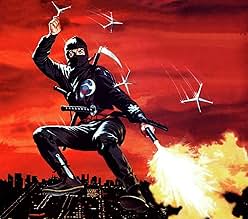

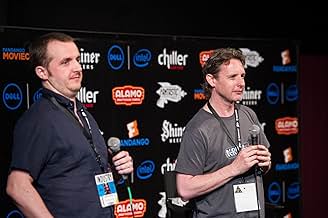
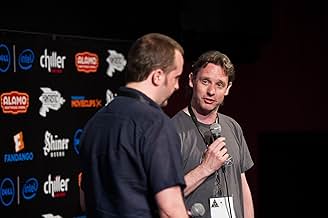
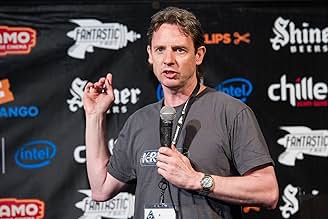

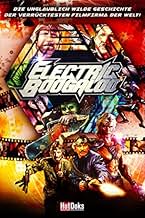
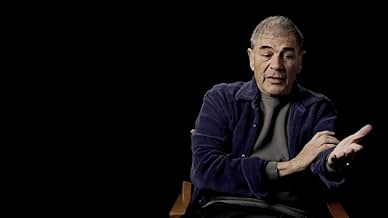
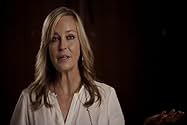















![[REC]4 Apocalipse](https://m.media-amazon.com/images/M/MV5BOTU3OTU2ODc5MF5BMl5BanBnXkFtZTgwNjY3MDY2MzE@._V1_QL75_UX140_CR0)





